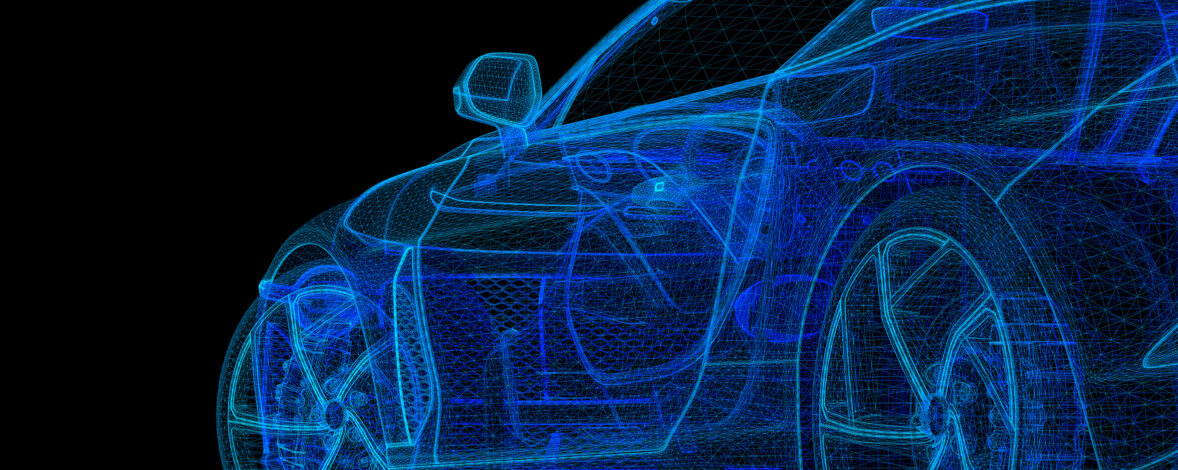In the latest episode of our “Driving Innovation” series, we hosted Yu Fang, CTO and Co-Founder of Sonatus in conversation with our Head of Product Marketing, Sanjay Khatri. The conversation centered around our comprehensive Software-Defined Component Solution, its role in the evolution of software-defined vehicles, and how it will redefine the automotive landscape to put more power in the hands of OEMs and suppliers.
What is a software-defined component?
Yu Fang calls modern vehicles a “holistic system” that consists of many digital components, such as ECUs, actuators, sensors, and even software applications and AI models. Further, he explains that for a component to be software-defined, it should first be observable at any time, so that its performance can be measured and analyzed. It needs to be dynamically updateable over the vehicle lifecycle to enhance its capabilities and improve its performance with the right tuning changes.
That is what the Sonatus Software-Defined Component Solution delivers, encompassing a three-part feedback loop: observe, analyze, act. He explains that for a component to be software-defined, it should first be observable at any time, so that its performance can be measured and analyzed in different driving situations. Following data collection, the data is pipelined to OEM and supplier AI/ML models, which they can analyze for areas of improvement, optimization, and tuning. The final step is action, where automation enables immediate, component updates based on those learnings, and can make real-time adjustments even during daily driving.
Capture just the data that matters
Tuning and optimizing vehicle components for real-world driving situations requires precise and highly flexible data collection under different driving and road conditions, terrain, temperature, driving styles, and more. Such data must be collected in volume and aggregated in the cloud to accurately analyze performance. Sonatus Collector allows OEMs and suppliers to configure granular data collection policies to a single vehicle or millions on the road to capture component performance data in precisely the desired situations. Gathering data with such precision means engineers can save time on data cleansing, and instead focus on identifying and executing the right component optimizations.
Accelerate analysis in the cloud
Yu Fang elaborates to say this precise and granular data collection makes the analysis significantly more efficient and yields more accurate results. Also, having this data easily available in the cloud gives OEMs and suppliers the advantage of modeling real-world conditions to run their sophisticated AI/ML algorithms, at any time, to continuously improve component performance.
“Today’s vehicle has many components that are becoming more and more sophisticated–and that means with those components, there are many ways that you can optimize [them] to work well, and in certain situations,” said Yu Fang. “For instance when the temperature is high or low, or when you’re driving uphill versus downhill, and so on.”
Traction control, for instance, may need tuning based on the specific road the vehicle is driving on. Another example is cameras–a feature new vehicles today have in spades–which could be tuned for the best picture under different lighting and time-of-day scenarios.
“That information is extremely important to help you understand the real performance of a component,” said Yu Fang. And it’s not simply data collected on the test track–instead, it is data collected from real individuals and groups of people using vehicles in daily life.
Adapt to real-world driving conditions dynamically
Enabling the vehicles to dynamically adapt to specific-situations using optimal operating parameters is the next step. Yu Fang explains that once OEMs have formulated the optimal tuning parameters for each driving situation, then they can encapsulate them into very lightweight automation policies using Sonatus Automator. This ensures that the right set of parameters can be automatically applied in each situation.”
Automator’s user-friendly console lets OEMs instantly create policies that automate the application of tuning parameters specific to certain conditions, and also facilitates the automatic deployment of these updates to all vehicles that need them. These compact policies ensure that vehicle components are continually optimized to deliver peak performance in any of the modeled situations, and that the components can be dynamically adjusted even while driving. This advanced functionality marks a new era of automotive technology where vehicle components no longer passively receive updates–they become intelligent systems capable of self-optimizing in response to current driving conditions. This not only reduces the reliance on OTA updates, but adds to enhanced vehicle safety, improved efficiency, and an elevated driving experience.
Sonatus today is working with a number of partners to transform their products into software-defined components. The diversity of those products, which range from motors to lighting systems, is indicative of how the Software-Defined Component Solution can be applied across vehicle systems to make the entire vehicle truly software-defined.
